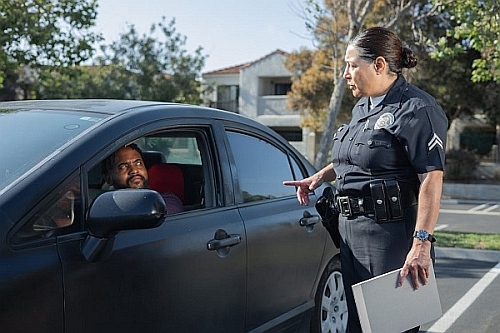If you’re pulled over on suspicion of DUI, the police officer may try to search your vehicle. You may be wondering how they can do this without a warrant. The answer lies in the concept of probable cause. This blog post will explore how probable cause allows police officers to search your vehicle during a DUI search.
We will also discuss your rights during a traffic stop and what you should do if you feel like the police are harassing you.
A DUI lawyer from the Bateman Law Firm can help you determine whether the police had probable cause to search your vehicle. If they did not have probable cause, then your Clemson, South Carolina DUI lawyer can file a motion to suppress evidence gathered as a result of the illegal search. This could lead to charges being dropped or reduced.
What Is Probable Cause?
If a police officer has probable cause to believe that you have been driving under the influence of alcohol, they may search your vehicle for evidence of this crime. This search is typically conducted after you have been pulled over and asked to step out of your car.
The officer may look for open containers of alcohol, bottles or cans recently consumed, or any other signs that you have been drinking. If they find evidence that you have been drinking, they may arrest you and confiscate your vehicle.
Why Do Police Officers Need Probable Cause?
Police officers need probable cause to search your ride during a DUI search because they need to have a reasonable belief that you have committed a crime to search. Probable cause is based on the totality of the circumstances and must be specific to you and your behavior.
Can A Police Officer Pull Me Over If I’m Not Driving?
If the officer has probable cause to believe you are driving under the influence, they can pull you over even if you are not driving.
When an arresting officer has probable cause to believe that a crime has been committed, they can search for evidence of that crime. In the context of a DUI search, the officer must have reason to believe that the driver is intoxicated before they can search the vehicle.
Probable cause can be based on many factors, including the driver’s behavior, appearance, and statements. For example, if the driver is weaving in and out of lanes, has slurred speech, or smells of alcohol, the officer may have probable cause to believe that they are intoxicated.
Once the officer has probable cause to believe that the driver is impaired, they can then conduct a search of the vehicle for evidence of intoxication. This may include looking for open containers of alcohol or drugs or observing any illegal substances in plain view.
How Do Police Officers Get Probable Cause?
Police officers must have probable cause to search your vehicle during a DUI stop. Probable cause is defined as a reasonable belief that a crime has been committed. This belief must be based on facts or circumstances that would lead a reasonable person to believe that a crime has been committed.
There are many ways in which police officers can obtain probable cause. The arrested officer may witness you driving erratically or may observe signs of intoxication such as slurred speech or the smell of alcohol on your breath. Additionally, an officer may receive information from other sources, such as dispatchers or anonymous tips that indicate you are intoxicated and driving.
When police officers pull over a driver suspected of driving under the influence (DUI), they may ask to search the vehicle for evidence of intoxication.
The driver may consent to the search, but they are not required to do so.
If the driver does not consent to a search, the officer may still be able to search if they have probable cause.
If you are stopped for DUI and asked to consent to a vehicle search, you should speak with an attorney before making any decisions. An experienced Clemson, South Carolina DUI lawyer can advise you on whether or not it is in your best interest to consent to a search.
What Can Be The Consequences Of A Car Search Without Probable Cause?
If a police officer does not have probable cause to search your vehicle, they may still be able to do so if they have a warrant. However, if they do not have a warrant, they will need to obtain your consent before searching your vehicle. If you do not consent to the search, the police officer needs to first obtain a search warrant from a judge and then.
If the police officer finds anything during the search of your vehicle that they believe to be illegal, they may seize the item, and you may be charged with a crime.
Why You Must Hire Clemson, South Carolina DUI Lawyers
When you are facing DUI charges, one of the first things you should do is hire a qualified criminal defense lawyer. Our experienced and reputable criminal defense lawyers in Clemson, South Carolina can help you fight your charges and protect your rights.
There are several benefits to hiring a qualified criminal defense attorney for a DUI case:
- First, your attorney will be able to investigate the facts of your case and determine if any evidence can be used to support your innocence.
- Second, your attorney will be able to negotiate with the prosecutor on your behalf and try to get the charges against you reduced or dismissed.
- Third, your attorney will be able to represent you in court and ensure that you receive a fair trial.
If you are facing DUI charges in Clemson, South Carolina, you must contact experienced criminal defense lawyers in Clemson, South Carolina from the Bateman Law Firm as soon as possible. The sooner you retain legal counsel, the better chance you have of fighting your charges and achieving a favorable outcome in your case.
Contact us now!

